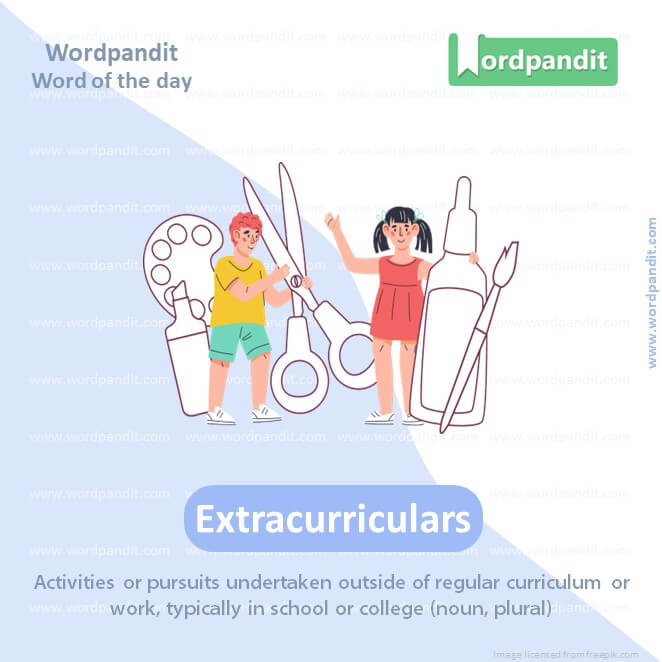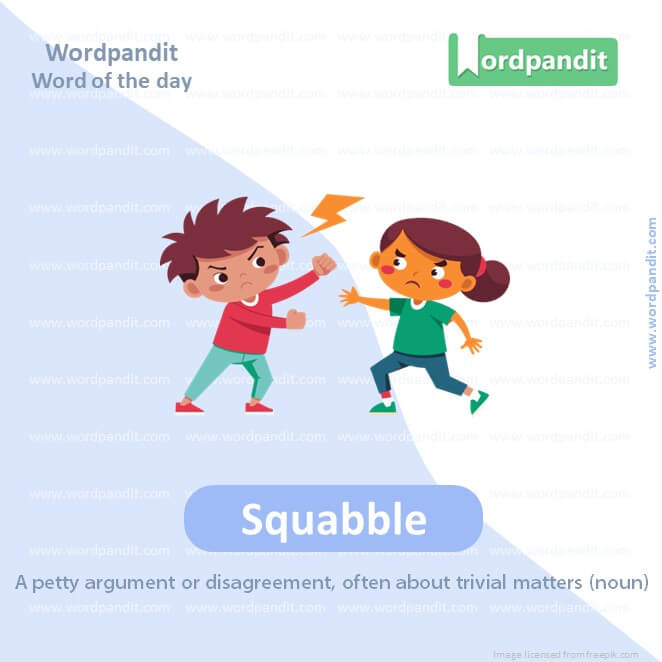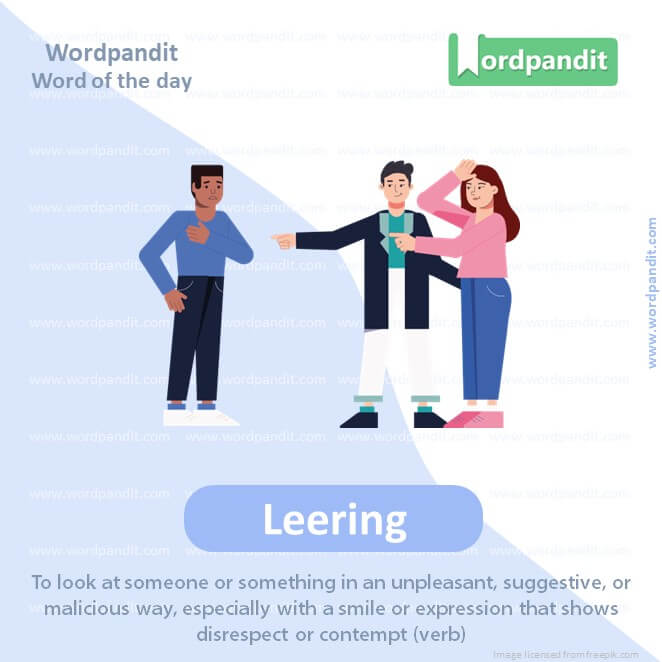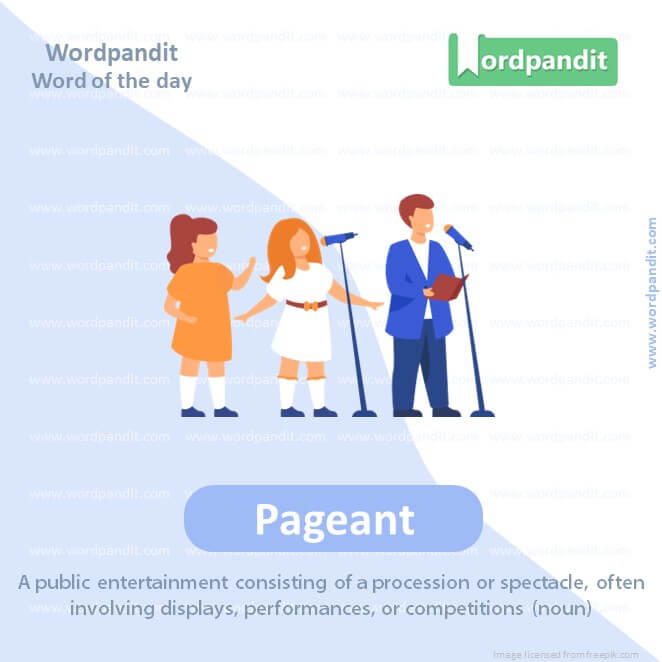Daily Vocabulary Words: List of Daily Used Words in Leading International Newspapers
Hi there. Welcome to this special section @ Wordpandit.
Our endeavour here is very simple: to highlight important daily vocabulary words, which you would come across in leading newspapers in the country. We have included the following newspapers in our selection:
• The New York Times
• The Washington Post
• Scientific American
• BBC
• The Guardian
• Psychology Today
• Wall Street Journal
• The Economist
We are putting in extensive work for developing your vocabulary. All you have got to do is be regular with this section and check out this post on a daily basis. This is your repository of words that are commonly used and essentially, we are posting a list of daily used words. Hence, this has significant practical application as it teaches you words that are used commonly in leading publications mentioned above.
Visit the website daily to learn words from leading international newspapers.

WORD-1: Harrowing
CONTEXT: The intention is to flatter accepted students and assuage rejected ones, but for those who have not yet applied to college, these statements reinforce the fear that there is an ever-expanding cohort of applicants with straight A’s and perfect SATs and harrowing camping trip stories all competing with one another for a vanishingly small number of spots.
SOURCE: The New York Times
EXPLANATORY PARAGRAPH: Imagine watching a scary movie where the characters are in danger and facing terrifying situations. That feeling of being deeply distressed or frightened is called “harrowing.” It’s like going through something very scary or traumatic.
MEANING: Extremely distressing, disturbing, or traumatic (adjective).
PRONUNCIATION: HAR-oh-ing
SYNONYMS: Distressing, traumatic, terrifying, alarming, chilling
USAGE EXAMPLES:
1. The novel tells a harrowing story of survival in a war-torn country.
2. She had a harrowing experience when her car skidded off the road.
3. The movie depicted the harrowing journey of refugees fleeing conflict.
4. The victim’s account of the incident was harrowing to listen to.
WORD-2: Drastic
CONTEXT: These range from common-sense tips (not posting illegal activity on social media) to more drastic recommendations (getting different friends).
SOURCE: The New York Times
EXPLANATORY PARAGRAPH: Imagine you have a problem that’s getting worse, and you decide to do something very big and bold to fix it. That big and bold action that brings about significant change is called “drastic.” It means doing something extreme or radical to solve a problem.
MEANING: Extreme in effect or action, likely to have a strong or far-reaching impact (adjective).
PRONUNCIATION: DRAS-tik
SYNONYMS: Extreme, radical, drastic, severe, dramatic
USAGE EXAMPLES:
1. The company made drastic changes to improve its financial situation.
2. She took drastic measures to overcome her fear of public speaking.
3. Drastic measures are needed to address the environmental crisis.
4. The doctor recommended drastic lifestyle changes for better health.

WORD-3: Extracurriculars
CONTEXT: Over the past few years, I have been struck by how many high school seniors already have defined career goals as well as a C.V. of relevant extracurriculars to go with them.
SOURCE: The New York Times
EXPLANATORY PARAGRAPH: Imagine you finish your regular school classes, but then you stay back to play sports or join clubs. Those activities that you do outside of regular school classes are called “extracurriculars.” They are like fun and educational activities that you do for enjoyment and learning.
MEANING: Activities or pursuits undertaken outside of regular curriculum or work, typically in school or college (noun, plural).
PRONUNCIATION: ek-struh-kuh-RIK-yuh-lers
SYNONYMS: Activities, hobbies, pursuits, pastimes, interests
USAGE EXAMPLES:
1. She participated in various extracurriculars like debate club and music lessons.
2. Extracurriculars help students develop skills beyond academics.
3. The school encourages students to engage in extracurricular activities.
4. His involvement in extracurriculars enriched his overall school experience.
WORD-4: Wriggles
CONTEXT: And even when he wriggles away from failure largely unscathed, the other parties involved aren’t always so fortunate.
SOURCE: The New York Times
EXPLANATORY PARAGRAPH: Imagine you see a worm moving in a zigzag pattern on the ground. That movement of twisting and turning, especially like a worm, is called “wriggles.” It’s like squirming or moving in a twisting and turning manner.
MEANING: To move with a twisting or wriggling motion, especially in a squirming or evasive way (verb).
PRONUNCIATION: RIG-uhls
SYNONYMS: Squirm, twist, turn, wiggle, wriggle
USAGE EXAMPLES:
1. The fish wriggled out of the fisherman’s grasp and escaped.
2. The toddler wriggled in her seat, unable to sit still.
3. He wriggled through the narrow opening to reach the other side.
4. The snake wriggled its way through the grass silently.
WORD-5: Unscathed
CONTEXT: And even when he wriggles away from failure largely unscathed, the other parties involved aren’t always so fortunate.
SOURCE: The New York Times
EXPLANATORY PARAGRAPH: Imagine you’re playing a game and everyone gets injured except you; you come out without a scratch. That feeling of being completely safe and untouched, without any harm or damage, is called “unscathed.” It’s like coming out of a difficult situation without any injuries or harm.
MEANING: Without suffering any harm, damage, or injury; completely safe and intact (adjective).
PRONUNCIATION: uhn-SKAYTHD
SYNONYMS: Unharmed, untouched, intact, undamaged, safe
USAGE EXAMPLES:
1. Despite the accident, she emerged unscathed and without any injuries.
2. The building survived the storm unscathed thanks to its sturdy construction.
3. He managed to escape the fire unscathed.
4. The treasure remained hidden and unscathed for centuries.

WORD-6: Squabble
CONTEXT: Other candidates and committees are an afterthought, left to squabble over his scraps.
SOURCE: The New York Times
EXPLANATORY PARAGRAPH: Imagine you and your friend arguing over who gets to play with a toy first. That little argument or disagreement, especially over something small or trivial, is called a “squabble.” It’s like a small fight or argument over something minor.
MEANING: A petty argument or disagreement, often about trivial matters (noun).
PRONUNCIATION: SKWAH-buhl
SYNONYMS: Argument, disagreement, dispute, quarrel, spat
USAGE EXAMPLES:
1. The siblings often have squabbles over who gets to use the computer first.
2. The meeting was delayed due to a squabble over seating arrangements.
3. It’s best to avoid squabbles and focus on finding solutions together.
4. The squabble over the last piece of cake was quickly resolved.
WORD-7: Whirring
CONTEXT: Which might not be problematic if the party’s money machine were whirring along smoothly.
SOURCE: The New York Times
EXPLANATORY PARAGRAPH: Imagine a machine or a fan making a continuous buzzing or humming sound as it spins quickly. That continuous sound of something spinning or moving rapidly is called “whirring.” It’s like a steady and continuous buzzing or humming noise.
MEANING: To make a continuous, buzzing, or humming sound, especially when spinning or moving rapidly (verb).
PRONUNCIATION: WUR-ing
SYNONYMS: Buzz, hum, drone, whiz, whirl
USAGE EXAMPLES:
1. The fan whirred softly in the background, providing a gentle breeze.
2. The engine whirred as the car accelerated down the highway.
3. The sewing machine whirred as she worked on the fabric.
4. The helicopter blades whirred loudly as it took off.

WORD-8: Leering
CONTEXT: The former president has been scrambling to close the gap, leering at potential funders as if they were contestants at the Miss Universe pageant.
SOURCE: The New York Times
EXPLANATORY PARAGRAPH: Imagine someone looking at you in a way that makes you feel uncomfortable or uneasy, like they’re staring at you in a rude or unpleasant manner. That look of staring rudely or in an unpleasant way is called “leering.” It’s like looking at someone with an unfriendly or unsettling gaze.
MEANING: To look at someone or something in an unpleasant, suggestive, or malicious way, especially with a smile or expression that shows disrespect or contempt (verb).
PRONUNCIATION: LEER-ing
SYNONYMS: Stare, glare, gawk, ogle, peer
USAGE EXAMPLES:
1. She felt uncomfortable with the way he was leering at her during the meeting.
2. The suspicious man was leering at the valuables in the store.
3. He couldn’t help but leer at the attractive waitress.
4. The bully was often seen leering at younger students in the hallway.

WORD-9: Pageant
CONTEXT: The former president has been scrambling to close the gap, leering at potential funders as if they were contestants at the Miss Universe pageant.
SOURCE: The New York Times
EXPLANATORY PARAGRAPH: Imagine a colorful event where people dress up in beautiful costumes and perform on a stage. That grand and festive event, often involving performances or displays, is called a “pageant.” It’s like a lively and entertaining show with music, costumes, and performances.
MEANING: A public entertainment consisting of a procession or spectacle, often involving displays, performances, or competitions (noun).
PRONUNCIATION: PAY-juhnt
SYNONYMS: Parade, show, spectacle, carnival, festival
USAGE EXAMPLES:
1. The city organized a grand pageant to celebrate its founding anniversary.
2. She participated in a beauty pageant and won the title.
3. The cultural pageant showcased traditional dances and music.
4. The pageant attracted tourists from all over the world.
WORD-10: Abruptly
CONTEXT: Complicating matters, he abruptly resigned in January after Kari Lake, the MAGAtastic election denier leading the Republican Senate field there, released a recording in which he seemed to offer her money to drop her 2024 bid.
SOURCE: The New York Times
EXPLANATORY PARAGRAPH: Imagine you’re walking and suddenly stop without warning. That sudden and unexpected stop or change without warning is called “abruptly.” It’s like something happening suddenly or without preparation.
MEANING: Suddenly and unexpectedly; without warning or preparation (adverb).
PRONUNCIATION: uh-BRUPT-lee
SYNONYMS: Suddenly, unexpectedly, sharply, suddenly, swiftly
USAGE EXAMPLES:
1. The meeting ended abruptly when the fire alarm went off.
2. He left the party abruptly without saying goodbye.
3. The music stopped abruptly, surprising everyone in the room.
4. She decided to change jobs abruptly, shocking her colleagues.
Vocabulary Meaning and Examples
In the fascinating world of language learning, a method particularly impactful is learning ‘vocabulary meaning and examples’. Harnessing this dual approach of understanding words through definitions and relevant examples yields a sound vocabulary grasp. Let’s explore how we can effectively learn vocabulary using ‘meaning and examples’.
Foremost, recognizing ‘meaning and examples’ involves more than just a surface glance at the definition. It requires an engaged interaction with the word, placing it within a proper context. This enriches comprehension and facilitates an innate understanding of the word’s applications.
The process of learning ‘meaning and examples’ is made highly effective through varied resources. Reading literature, online articles, and language learning platforms offer numerous examples enriching the meanings. By frequently encountering a word in various contexts, the understanding of the ‘meaning and examples’ deepens, imprinting the word into long-term memory.
When learning ‘meaning and examples’, creating personal sentences is recommended. Develop your own examples using the given word. This personal connection between learned vocabulary and your everyday life context strengthens both familiarity and recall.
Moreover, taking notes while studying ‘meaning and examples’ goes a long way in mastering vocabulary. Jotting down the definition and a couple of examples for reference leads to better recall during revisions.
Finally, teach to learn. A tried-and-true method to solidify ‘meaning and examples’ is by explaining the word to someone else. This exercise forces you to articulate the word’s usage and understanding clearly, embedding it further in your memory.
In conclusion, the journey to learn ‘vocabulary meaning and examples’ is a rewarding process that involves a multifaceted approach. As you dive into the rich experience of understanding words through ‘meaning and examples’, you uncover the nuance and depth of language, enabling you to master it in its true sense.











